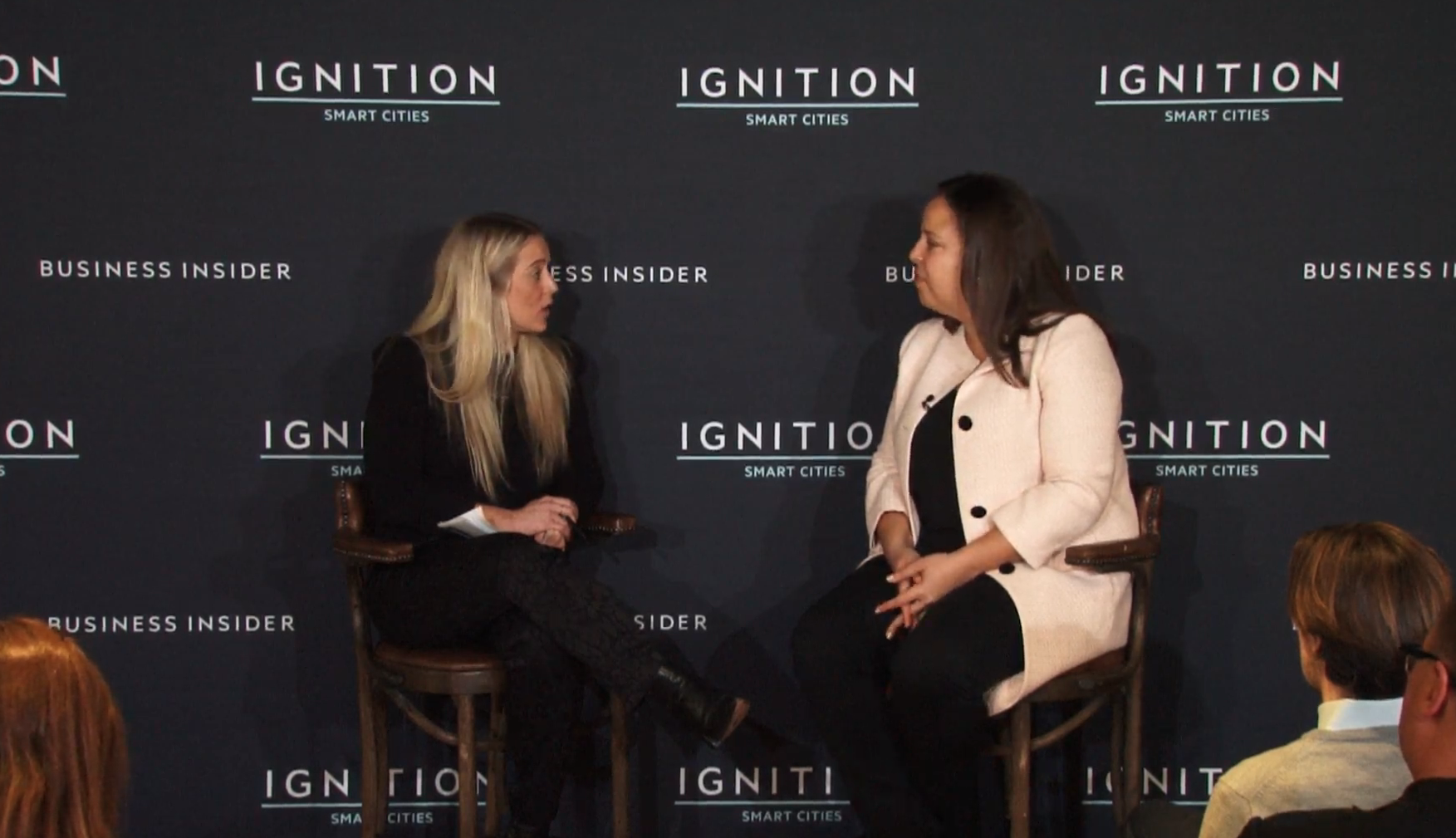- On Tuesday, Business Insider held its IGNITION: Smart Cities event in Washington, DC.
- Lindsey Parker, CTO of the city, discussed ways to make smart cities equitable.
- Parker told the audience that she sees an “Amazon experience” as the future of government.
- Visit Business Insider’s homepage for more stories.
Lindsey Parker, CTO of Washington DC, discussed ways to make smart cities more equitable at Business Insider’s IGNITION:Smart Cities panel on Tuesday.
Parker sees the future of government as eventually being like an “Amazon experience.” She described how DC has 87 different departments that can interact with residents’ lives, but the process should eventually be streamlined, so people don’t have to deal with each department individually.
“You should be able to sign in if you want to,” she said, to one government system that can tell you, for example, if your business license is going to expire, how to register children for the school lottery, and when to expect maintenance on your road – all in one centralized place. “That experience is what we all want,” she said, comparing it to online banking and Amazon Prime. “That’s the vision, bettering digital experience for people who have to interact with government.”
Parker pointed out the discrepancy between how people view companies like Facebook and how they view government. “It’s always funny to me that people will give over their mother’s birthday to Facebook, but when it comes to government,” they’re much less willing, she said. She stressed that people shouldn’t have to give information, but if they want to sign in to a centralized government system, they should eventually be able to.
Parker recognizes that cities aren't there yet. The government doesn't sell things like Amazon, but it does need to monitor trust and track if it is adequately getting services to people who need them. "Agencies should be able to talk to each other," Parker said. But to get there, she says they need engagement.
As cities gather and use more data, the conversation shifted to cyber security. "That's what keeps me up at night," Parker said about the possibility of a data breach. DC has a robust security system, although Parker says that makes her fear someone will make her "eat those words." The city is in a unique position as far as hacks and data breaches, because people tend to try whatever they're planning on Washington DC before they hit the federal government, so DC officials can warn the FBI or other agencies about attacks they're seeing in case the same thing crops up federally.
Still, no matter how good their defenses are, Parkers says that they are only as good as the information that they have. If someone comes up with a new method of getting past security defenses, "that's what's gonna make sure I don't ever go to sleep for the next three years."
Watch the full IGNITION: Smart Cities event below:

